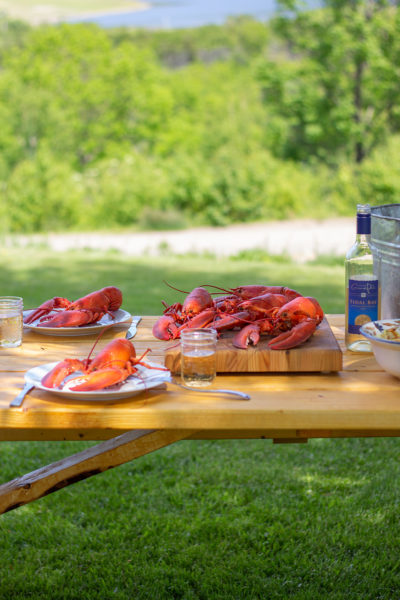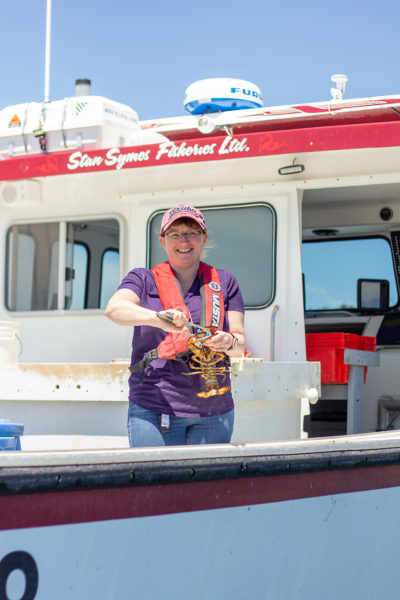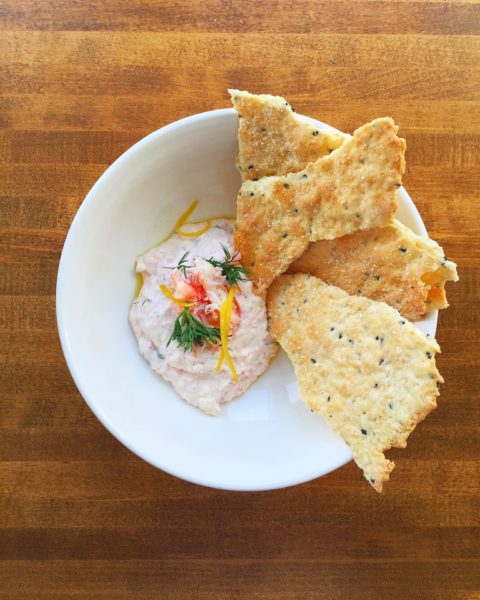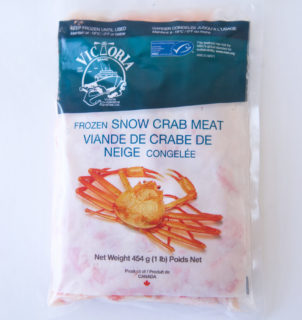Victoria Co-operative Fisheries Ltd: All About Community

Photo: Shannon MacIntyre
North of Smokey, not far off the Cabot Trail, you’ll find the small fishing community of Neil’s Harbour, Cape Breton and within it, seafood harvesting and processing company Victoria Co-operative Fisheries Ltd (VCFL).
“Very simply put, Victoria Co-operative Fisheries Ltd. is community,” says VCFL’s Facility Manager, Marlene Rambeau. From being owned by local fishermen to having a local board of directors, general manager and employees — community is at the foundation of everything they do.
—
“The whole concept of starting our organization was to overcome being at the mercy of merchants, who would only buy in peak season, often leaving fishermen owing more to the merchants at the end of the year than they were paid for their entire year’s catch,” says VCFL’s general manager Osborne Burke.
Established in 1955, the co-op first included two communities in the North of Smokey region. Today, it includes all seven harbours, more than 125 members and approximately $46 million in sales, shipping seafood all over the world. VCFL even owns their own trucking company, North Victoria Trucking, which allows them to deliver product throughout Canada and the United States more easily. Their main products include live lobster, whole cooked lobster, snow crab, Jonah crab, halibut and more.

Photo: Shannon MacIntyre
Among the local members of VCFL is Jenny Symes, a crew member of the Miss Olivia Ann in Ingonish.
Symes says she feels it’s important to support the local co-op because it supports the community by providing jobs for locals, friends and family to stay and live in the community.
“I get to do a job I love, outdoors on the ocean and fish on the same bottom where my grandfather did, with my husband,” says Symes, noting her husband is also a fourth-generation fisherman.
“Our livelihood comes from catching lobster,” says Symes. “The fact that we can eat it as well as make a living from it is just amazing.”
—
A focus on quality is a key pillar for VCFL. The co-operative uses state of the art equipment, electronic and manual monitoring, and an in-house testing lab to ensure they maintain a high quality in all their products.
“Customers are looking for traceability and sustainability in seafood, which we welcome as a locally owned, operated and managed organization with a commitment to the sustainability of stocks,” says Burke. “For us, making continual improvements in our cold chain logistics, like installing sensors in lobster pounds and reefer trailers, ensures we are maintaining a top-quality product.”
Patterson Gray-Rochon, chef and owner-operator of The Markland Coastal Beach Cottages, located not far up the road in Dingwall, can attest to this focus on quality.
“As a chef, having the option to use locally sourced seafood that has been expertly prepared helps keep our food excellent,” says Gray-Rochon. “Knowing the fisherfolk that harvested the seafood, the people who process it and the management, puts a friendly face on our community’s best exports!”
Another well-known Nova Scotia chef that can be found often using Victoria Co-operative’s snow crab on their menu is the Canteen’s Chef Renée Lavallée. In a video last February, Lavallée described VCFL’s snow crab as sweet and succulent, and one of the “best products.”

Photo: The Canteen
Learn how to make the Canteen’s five minute snow crab dip for yourself!
—
After 67 years, Victoria Co-operative has grown from a thriving ground fish operation to a competitive company in the lobster and crab industry. They continue to add new products and look ahead to stay competitive, including recent updates in winterizing and expanding the processing facility with the intent to stay open longer in 2022.
Hungry after reading this? Look for VCFL products locally at their own retail outlets, online at the Cape Breton Food Hub, in Halifax at Fisherman’s Market, as well as numerous restaurants throughout the province.

–
